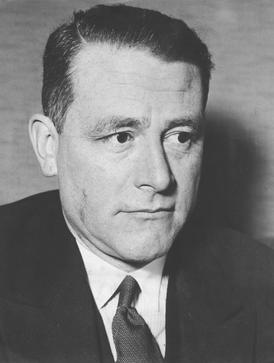
William Boyd Watterson II is an American cartoonist who authored the comic strip Calvin and Hobbes. The strip was syndicated from 1985 to 1995. Watterson concluded Calvin and Hobbes with a short statement to newspaper editors and his readers that he felt he had achieved all he could in the medium. Watterson is known for his negative views on comic syndication and licensing, his efforts to expand and elevate the newspaper comic as an art form, and his move back into private life after Calvin and Hobbes ended. Watterson was born in Washington, D.C., and grew up in Chagrin Falls, Ohio. The suburban Midwestern United States setting of Ohio was part of the inspiration for the setting of Calvin and Hobbes. Watterson lives in Cleveland Heights, Ohio as of January 2024.

Calvin and Hobbes is a daily American comic strip created by cartoonist Bill Watterson that was syndicated from November 18, 1985, to December 31, 1995. Commonly described as "the last great newspaper comic", Calvin and Hobbes has enjoyed broad and enduring popularity, influence, and academic and philosophical interest.
Natural law is a system of law based on a close observation of natural order and human nature, from which values, thought by natural law's proponents to be intrinsic to human nature, can be deduced and applied independently of positive law. According to the theory of law called jusnaturalism, all people have inherent rights, conferred not by act of legislation but by "God, nature, or reason". Natural law theory can also refer to "theories of ethics, theories of politics, theories of civil law, and theories of religious morality".

Thomas Hobbes was an English philosopher. Hobbes is best known for his 1651 book Leviathan, in which he expounds an influential formulation of social contract theory. He is considered to be one of the founders of modern political philosophy.

In moral and political philosophy, the social contract is an idea, theory or model that usually, although not always, concerns the legitimacy of the authority of the state over the individual. Conceptualized in the Age of Enlightenment, it is a core concept of constitutionalism, while not necessarily convened and written down in a constituent assembly and constitution.

Leviathan or The Matter, Forme and Power of a Commonwealth Ecclesiasticall and Civil, commonly referred to as Leviathan, is a book written by Thomas Hobbes (1588–1679) and published in 1651. Its name derives from the biblical Leviathan. The work concerns the structure of society and legitimate government, and is regarded as one of the earliest and most influential examples of social contract theory. Written during the English Civil War (1642–1651), it argues for a social contract and rule by an absolute sovereign. Hobbes wrote that civil war and the brute situation of a state of nature could be avoided only by a strong, undivided government.
In ethics, political philosophy, social contract theory, religion, and international law, the term state of nature describes the hypothetical way of life that existed before humans organised themselves into societies or civilizations. Philosophers of the state of nature theory propose that there was a historical period before societies existed, and seek answers to the questions: "What was life like before civil society?", "How did government emerge from such a primitive start?", and "What are the hypothetical reasons for entering a state of society by establishing a nation-state?".

Ferdinand Tönnies was a German sociologist, economist, and philosopher. He was a significant contributor to sociological theory and field studies, best known for distinguishing between two types of social groups, Gemeinschaft and Gesellschaft. He co-founded the German Society for Sociology together with Max Weber and Georg Simmel and many other founders. He was president of the society from 1909 to 1933, after which he was ousted for having criticized the Nazis. Tönnies was regarded as the first proper German sociologist and published over 900 works, contributing to many areas of sociology and philosophy. Tönnies, Max Weber, and Georg Simmel are considered the founding fathers of classical German sociology. Though there has been a resurgence of interest in Weber and Simmel, Tönnies has not drawn as much attention.
Gemeinschaft and Gesellschaft, generally translated as "community and society", are categories which were used by the German sociologist Ferdinand Tönnies in order to categorize social relationships into two types. The Gesellschaft is associated with modern society and rational self-interest, which weakens the traditional bonds of family and local community that typify the Gemeinschaft. Max Weber, a founding figure in sociology, also wrote extensively about the relationship between Gemeinschaft and Gesellschaft. Weber wrote in direct response to Tönnies.

Carl Schmitt was a German jurist, political theorist, geopolitician and prominent member of the Nazi Party.

Sir Robert Filmer was an English political theorist who defended the divine right of kings. His best known work, Patriarcha, published posthumously in 1680, was the target of numerous Whig attempts at rebuttal, including Algernon Sidney's Discourses Concerning Government, James Tyrrell's Patriarcha Non Monarcha and John Locke's Two Treatises of Government. Filmer also wrote critiques of Thomas Hobbes, John Milton, Hugo Grotius and Aristotle.
Early modern philosophy The early modern era of philosophy was a progressive movement of Western thought, exploring through theories and discourse such topics as mind and matter, is a period in the history of philosophy that overlaps with the beginning of the period known as modern philosophy. It succeeded the medieval era of philosophy. Early modern philosophy is usually thought to have occurred between the 16th and 18th centuries, though some philosophers and historians may put this period slightly earlier. During this time, influential philosophers included Descartes, Locke, Hume, and Kant, all of whom contributed to the current understanding of philosophy.
A polity is a group of people with a collective identity, who are organized by some form of political institutionalized social relations, and have a capacity to mobilize resources.

The phrase "scientia potentia est" is a Latin aphorism meaning "knowledge is power", commonly attributed to Sir Francis Bacon. The expression "ipsa scientia potestas est" occurs in Bacon's Meditationes Sacrae (1597). The exact phrase "scientia potentia est" was written for the first time in the 1668 version of Leviathan by Thomas Hobbes, who was a secretary to Bacon as a young man. The related phrase "sapientia est potentia" is often translated as "wisdom is power".
Crawford Brough Macpherson was an influential Canadian political scientist who taught political theory at the University of Toronto.
Robert Sharrock (1630–1684) was an English churchman and botanist. He is now known for The History of the Propagation and Improvement of Vegetables by the Concurrence of Art and Nature (1660), for philosophical work directed against Thomas Hobbes, and as an associate of Robert Boyle
De Cive is one of Thomas Hobbes's major works. The book was published originally in Latin from Paris in 1642, followed by two further Latin editions in 1647 from Amsterdam. The English translation of the work made its first appearance four years later under the title Philosophicall rudiments concerning government and society.

The Hobbes–Wallis controversy was a polemic debate that continued from the mid-1650s well into the 1670s, between the philosopher Thomas Hobbes and the mathematician and clergyman John Wallis. It was sparked by De corpore, a philosophical work by Hobbes in the general area of physics. The book contained not only a theory of mathematics subordinating it to geometry and geometry to kinematics, but a claimed proof of the squaring of the circle by Hobbes. While Hobbes retracted this particular proof, he returned to the topic with other attempted proofs. A pamphleteering exchange continued for decades. It drew in the newly formed Royal Society, and its experimental philosophy to which Hobbes was opposed.

Pearl Mary Teresa Richards was an Anglo-American novelist and dramatist who wrote under the pen-name of John Oliver Hobbes. Though her work fell out of print in the twentieth century, her first book Some Emotions and a Moral was a sensation in its day, selling eighty thousand copies in only a few weeks.








